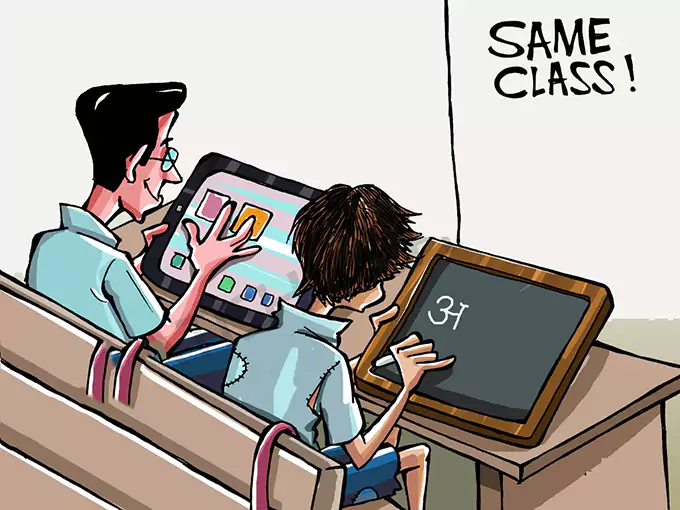
The solemn processions of recent graduation seasons mask a pervasive issue – the systematic transmutation of privilege into perceived merit in our educational system. This phenomenon, known as ‘privilege laundering‘, undermines the foundational principles of meritocracy and equality that educational institutions supposedly uphold.

✅ AI Essay Writer ✅ AI Detector ✅ Plagchecker ✅ Paraphraser
✅ Summarizer ✅ Citation Generator
Key Takeaways:
- Privilege laundering, an insidious practice in the education system, effectively transforms socioeconomic privilege into perceived merit.
- Elite educational institutions play a central role in perpetuating privilege-based disparities.
- Privilege significantly impacts students’ educational experiences and post-graduation career opportunities.
The Illusion of Elite Education
Our educational institutions, particularly elite ones, play a significant role in the perpetuation of socioeconomic disparities. Elite colleges and universities often serve as the culmination of a privilege laundering scheme that begins before kindergarten and extends through the job market. The stratification of education in the United States, wherein affluent families invest heavily in their children’s education to secure them a place at prestigious institutions, exemplifies this system of privilege. This practice, which encompasses everything from securing placements in private or elite public schools to preparing for standardized tests, is all aimed at securing a coveted seat at institutions like Harvard.
The reality, however, is that the education received by these ‘elite’ students is not extraordinary. Research suggests that affluent children derive little practical advantage from attending elite K-12 schools since they already possess what others stand to gain from these institutions. The crucial aspect of this privilege is its perception as ‘merit’.
“Contemporary wizards perform an even more arcane sort of alchemy—transforming gold into perceptions of ‘merit.'”
This perspective is crucial in understanding the privilege laundering process.
The Impact of Privilege on Education
The impact of privilege in educational systems is profound and far-reaching. It not only maintains existing social disparities but also perpetuates the illusion of meritocracy. Affluent students have a distinct advantage when it comes to admission into prestigious universities, creating a cycle of privilege that is difficult to break. This privilege is frequently disguised as merit, with high grades and prestigious degrees attributed to students’ individual achievements rather than their socioeconomic advantages.
This practice extends beyond admission into elite schools, as it also affects hiring practices in ‘symbolic’ industries like media, law, technology, finance, and consulting. Employers often favor graduates from prestigious institutions, inadvertently reinforcing the privilege-based hierarchy.

Moreover, privilege impacts the educational experiences of students, especially in elite institutions. Despite their subpar academic performance, elite students often outperform their less privileged counterparts in their post-graduation careers, thanks to the networking and socializing opportunities provided by these institutions. The stratified educational system is thus fundamentally skewed in favor of those who have the privilege of attending elite schools.
The Varsity Blues scandal in 2019 further highlighted this problem. The scandal exposed the lengths to which affluent families would go to secure their children a place in elite institutions, all the while fostering the belief in these children that they had earned these positions due to their merit.
In an age where education is viewed as the key to success, the issue of privilege laundering raises critical questions about the fairness and equality of our educational systems. At its core, privilege laundering threatens the ideals of meritocracy, as it blurs the line between merit and privilege. It underscores the need for significant systemic changes to ensure that opportunities for academic and professional success are not just the privilege of the few, but the right of many.
Also read:
Being Behind in Primary Schools Is No Problem to Australian Students as They Catch Up by High School
Nebraska University Boosts Diversity in STEM with Innovative Scholarship Program
College Application Essays Are Becoming A New Venue to Discuss Race
Follow us on Reddit for more insights and updates.





Comments (0)
Welcome to A*Help comments!
We’re all about debate and discussion at A*Help.
We value the diverse opinions of users, so you may find points of view that you don’t agree with. And that’s cool. However, there are certain things we’re not OK with: attempts to manipulate our data in any way, for example, or the posting of discriminative, offensive, hateful, or disparaging material.